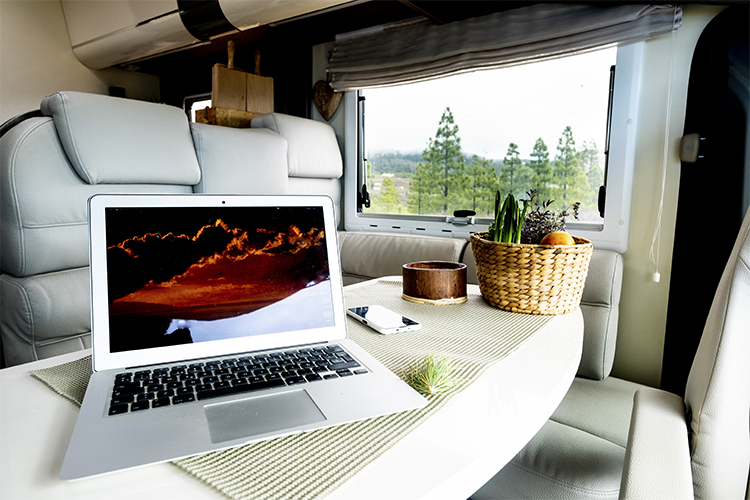As we begin to ease into Spring 2023, let’s look at how Covid-19 has changed the need for reliable remote access to the Internet. Despite a seeming “return to normal,” the reality is that a significant portion of businesses have transitioned from in-person to remote modes of work—or at least hybrids thereof. We continue to live on our computers and remote devices. Indeed, more than ever before, it appears we can’t live without them.
The changes thrust upon us by the pandemic have altered our lives and affected daily routines. People are asking their employers if they can continue to work remotely and keep their jobs. Others have taken an alternative entrepreneurial approach or have found different ways to make a decent living.
Many people continue to feel present and future uncertainty. This is one of those dynamics that feeds an impulse to get out on the road. People young and old(er) are deciding to try to or entirely change old lifestyles by exploring the U.S. As they embark on their adventures, they need a way to stay in touch.
Without connectivity, people feel nervous. Some even panic without a connection. We have been walking around with phones that are themselves computers. If our devices don’t work, we feel as if we were living in the Stone Age.
At this stage of this continuing and uncertain arc of Covid-19 and its variants, people are still trading in houses, apartments, and condos for RV living. These explorers are finding themselves suited to traveling the open road. However, in order to make that work, a reliable internet connection is absolutely necessary and non-negotiable.
From 2020 until now, recreational vehicles have saved the sanity of couples, families, and individuals who see an opportunity to “take their show on the road.” Without the constraints of having to live in a “static box,” many people choose to keep moving until they find a temporary campground, beach or national park that suits them as a “revolving backyard” for their traveling homes.
The RV industry continues to see considerable growth for less complicated Class B motorhomes. The vehicles are in very high demand, probably in response to high fuel prices and the desire for “smaller living.”
Younger travelers, who are content to live with less, are trying to be greener in choosing these smaller and more fuel-efficient Class B homes. The size and car-like characteristics as well as the easier driving compared to larger Class C RVs are a solution for those travelers.
They have traded less interior living space and storage for a simpler lifestyle. The big difference: this generation of new RV’ers, who favor remote or mobile living, absolutely use the most data of any group to date and need the most reliable connections to continue their “movable lifestyles.”
Easy Choice Wireless has the service these customers demand. The company is the best choice for nationwide portable WiFi and rural Internet. Easy Choice has a superior, unlimited rural Internet offering the highest speeds with the best router quality available—4G LTE. RV customers will be connected if they can receive an LTE signal.
Travelers stay connected with the Easy Choice Router. They simply have to plug in their new devices and start browsing or making calls. The router will choose between three national wireless carriers to get the customer connected. Whichever carrier has the strongest signal near his or her location will automatically connect and begin feeding the RV or other travel vehicle high quality Internet data.
Sign up with Easy Choice. It is absolutely the best product for RV living. Superior service from Easy Choice Wireless will assist customers in avoiding dead zones across the U.S. We promise our customers a better mobile signal when you are traveling in your RV.
As we go down the road, opt for a compact travel router for easy service. Customers won’t wrestle with Internet connectivity issues as they explore the USA. We get it. Our customers must have great, efficient connectivity. That’s what we deliver 24/7. Remember, have fun on the journey.

